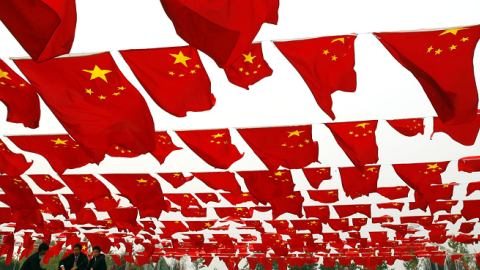In little over a year, close to 60 Chinese officials have died of unnatural causes, with most being suicides. The strong suspicion is that this epidemic of mysterious deaths among China’s elite is likely tied to the anticorruption campaign being led by Chinese president and party general secretary Xi Jinping.
Certainly Xi Jinping’s anticorruption drive has reached higher in the bureaucracy than any such effort in decades. Coming on the heels of the prosecution of the high-flying Bo Xilai, a former Central Politburo member and potential rival of Xi, it raises the possibility of elite instability on a level not seen since the Cultural Revolution. Not surprisingly, Chinese newspapers have been told in a secret order from Beijing to stop reporting on suicides by top government and party officials.
Understanding what all this means is one of the U.S. government’s most important strategic intelligence tasks. While China is not, in intelligence terms, a “closed society” along the lines of the former Soviet Union or present-day North Korea, it remains a challenge to get inside the heads, as it were, of China’s elite to understand how they view the challenges they face, how decisions are made, and why.
Needless to say, it has proven difficult to recruit highly placed sources within a country with a pervasive domestic security apparatus like China’s. Effective internal security programs make it difficult, first, to recruit someone and, second, to keep that individual reporting for any length of time without being discovered.
Hence, in the past, when facing such hard targets, a primary source of information—indeed, perhaps the principal source of information at times—was the timely defection. An official who for one reason or another decides to abandon his country and who has had access through his employment or connections to valuable information can reasonably hope to be welcomed in countries that want the information. Although not as valuable as “agents-in-place,” defectors have been crucial sources of intelligence about governments where information is scant.
Given our need for insight into the thinking of the Chinese elite, one would think that this might be an extremely propitious time for this type of informant. Xi Jinping’s anticorruption campaign last year led to the punishment of more than 180,000 party officials for abuse of power and corruption, according to the Chinese Communist party’s own numbers. And while most were minor functionaries, the net has broadened to include senior officers in the party, the military, and the security services.
The most prominent target, Zhou Yongkang, was a former Politburo Standing Committee member, head of the country’s oil company, and director of China’s domestic security agency. Zhou’s reported links with the disgraced Bo Xilai suggest that the apparent rivalry between Xi and Bo is not unconnected with Zhou’s current troubles. One can speculate that Zhou’s circle of bureaucratic allies and clients, as well as members of his family, must be feeling the heat.
As the noose tightens, U.S. intelligence ought to make clear to those Chinese within the government elite that there are safe havens in the West—as long as they are willing to cooperate.
Thanks to China’s economic boom, and the very corruption that Xi now sees as threatening the future of Communist rule in China, many members of the elite have managed to smuggle a massive amount of wealth out of the country. Members of the elite have sent their children to college in the West, especially in the United States and the United Kingdom, and are purchasing real estate in Manhattan, London, and elsewhere in increasingly large numbers.
This is clearly an elite worried about its future. U.S. intelligence is in a position to facilitate defectors’ enjoyment of their wealth in relative security. Or, should Langley want to play hardball, it could well be in a position, in certain cases, to increase the danger of those who might want to stay in China by threatening to reveal embarrassing bits of information publicly, such as how much lucre they have stashed away, and where they have hidden it.
One would prefer, of course, to welcome only defectors with high-minded motives, such as a desire to promote the democratization of their homeland. Most, however, will leave for less noble reasons, such as avoiding imprisonment. Some will be motivated by simple greed. It’s the intelligence community’s job to hold its nose, encourage defections, and, in turn, provide policymakers with information and insights about a Chinese ruling elite whose thinking and workings remain far too closed for American security and comfort.
While Russia’s aggressive posture toward Ukraine currently tops our national security agenda, it’s a good bet that, over the longer term, China will remain the foreign country with which the United States will be most concerned. Let’s hope U.S. intelligence is taking advantage of the internal turmoil among the Chinese elite.
















